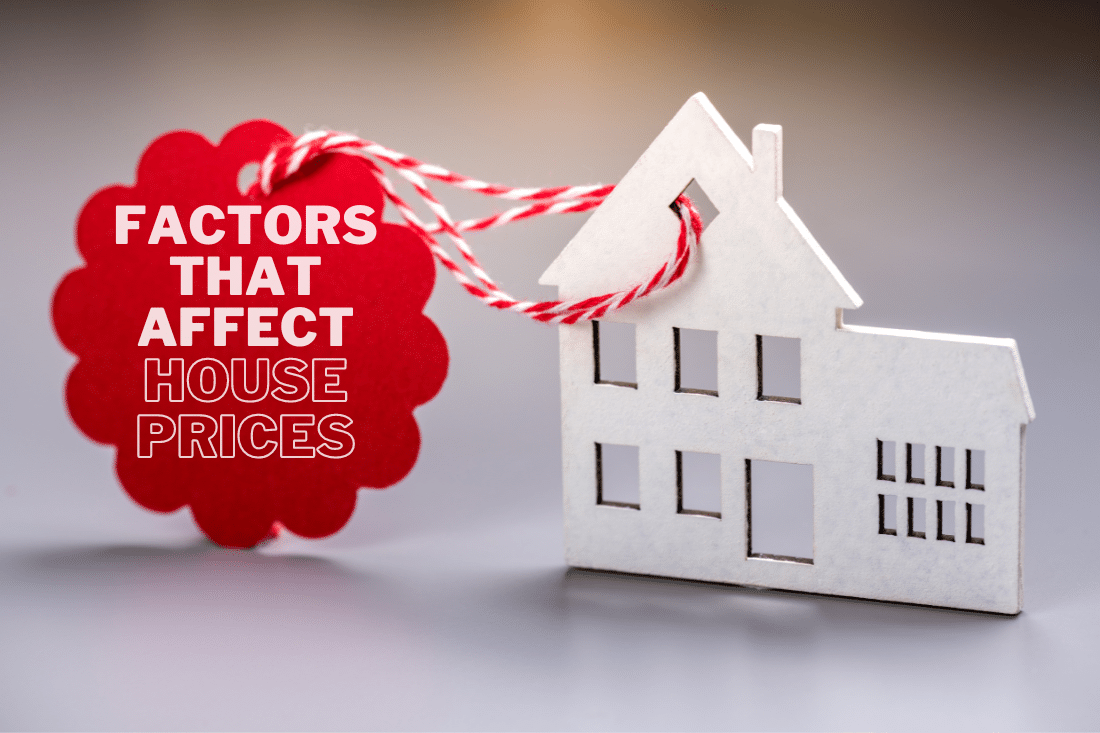
Unraveling the Mystery: Factors That Affect House Prices
Have you ever found yourself browsing through property listings only to be baffled by the wide range of prices for seemingly similar houses? It’s a common experience, and it’s all down to the many factors affecting house prices. From the property’s location to the state of the economy, a complex web of elements comes into play when determining a house’s value. But don’t worry; we’re here to help you make sense of it all. So, if you’re curious about what drives the real estate market or if you’re considering buying or selling a property, here are the steps to take to understand the factors that affect house prices.
Location: The Prime Factor
Proximity to Amenities
One of the most significant factors that affect house prices is the location. For instance, a house located near essential amenities such as schools, hospitals, shopping centers, and public transportation usually commands a higher price. Imagine the convenience of having everything you need within a short walk or drive. It’s not just about the convenience, though. It’s also about the time and money saved from not having to commute long distances. For example, if you have children, living near a reputable school could save you from the costs and stress of a daily school run.
Desirability of the Neighborhood
The desirability of the neighborhood also plays a crucial role in determining house prices. Factors such as the safety and cleanliness of the neighborhood, as well as the quality of the local schools, can significantly affect house prices. Think of it this way: a house is not just a place to live but also an investment. And just like any other investment, you want to make sure that it’s in a location that holds or increases its value over time.
Market Trends
Lastly, the current market trends in the area can also influence the price of a house. If the area becomes more popular, the prices will likely rise. This could be due to various reasons, such as new developments, improvements in local amenities, or an influx of businesses creating more job opportunities. It’s like riding a wave; if you can catch it at the right time, you could see a significant return on your investment.
Size and Layout: More Than Just Square Footage
The Impact of Square Footage
When it comes to the size of the house, it’s not surprising that larger houses with more rooms typically cost more. The house’s total square footage is a major factor in determining its price. It’s simple economics: more space often equals a higher price tag. But remember, it’s not just about quantity; the space’s quality also matters.
The Role of Rooms
The number of bedrooms and bathrooms can also affect the price. A house with multiple bedrooms can accommodate a larger family, making it more appealing to buyers with children. Similarly, having more than one bathroom can significantly increase a house’s appeal. Imagine the convenience of not having to queue for the bathroom during the morning rush!
The Influence of Layout
Interestingly, the layout of the house, such as an open floor plan, can also influence its price. An open floor plan can make a house feel more spacious and allow more natural light to flow through the house. It’s like having a blank canvas where you can easily customize the space to fit your lifestyle. For example, you can create a seamless flow between the kitchen, dining, and living areas, perfect for entertaining guests or keeping an eye on the kids while cooking.
Age and Condition: The Test of Time
The Impact of Age
The age of a house can significantly influence its price. Older houses, especially those that have not been well-maintained, may require more maintenance and repairs, which can lower their prices. It’s like buying a vintage car; it may have a certain charm, but it could also come with a host of potential issues that need fixing.
The Importance of Condition
The condition of a house is another crucial factor that can affect its price. Houses that are in poor condition will typically have lower prices, as buyers may need to invest additional time and money into making them livable. On the other hand, a house that is in excellent condition and has been well-maintained can command a higher price. It’s similar to buying a used car; a well-maintained car with a full-service history is likely to be worth more than one that has been neglected.
The Value of Renovations
Renovations and upgrades can increase the price of a house. For example, a newly renovated kitchen or bathroom can make a house more appealing to buyers. It’s like getting a makeover; with a fresh and modern look, the house can attract more potential buyers and command a higher price. However, it’s important to note that not all renovations will increase a house’s value. Some may not provide a return on investment, so it’s crucial to research and plan carefully before undertaking any major renovations.
Economic Factors: The Bigger Picture
The Role of Interest Rates
Economic factors can also have a significant impact on house prices. For instance, lower interest rates can lead to higher house prices as more people are able to afford mortgages. It’s like a sale at your favorite store; more people are likely to buy when prices are low.
The Impact of Employment Rates
High employment rates can lead to higher house prices as more people can afford to buy homes. When more people have stable jobs, they are more likely to invest in real estate, driving up demand and prices. It’s like a busy restaurant; the more people who want to dine there, the more the restaurant can charge for its meals.
Supply and Demand: The Balancing Act
The Influence of Available Houses
The balance of supply and demand in the housing market can significantly influence house prices. If there are many houses available but few buyers, prices may drop. It’s like a clearance sale; when there’s too much stock and not enough buyers, prices are often reduced to attract more customers.
The Power of Buyers
Conversely, prices may rise if many buyers but few houses are available. This situation often occurs in popular areas where many people want to live but have a limited house supply. It’s like a bidding war at an auction; when there’s a high demand for a limited item, people are willing to pay more to secure it.
The Seasonal Effect
The time of year can also affect supply and demand. For example, more houses are typically available in the spring, which can affect prices. It’s like the seasons in the fashion industry; new collections are often released in the spring, providing more options for shoppers and potentially affecting prices.
Final Thoughts: Navigating the Real Estate Market

Understanding the factors that affect house prices can help you make informed decisions when buying or selling a house. From the location of the property to the state of the economy, each factor plays a crucial role in determining a house’s value. Remember, a house is not just a place to live but also an investment. By understanding these factors, you can ensure that your investment is sound. So whether you’re a first-time buyer, a seasoned investor, or someone looking to sell, remember these factors and confidently navigate the real estate market. Happy house hunting!
FAQs
What factors affect the price of housing?
The price of housing is influenced by various factors, including location, size, the layout of the house, age, and condition of the property, economic factors, and the balance of supply and demand in the housing market.
What are the 3 most important factors in real estate?
The three most important factors in real estate are often considered to be the property’s location, size, and condition. However, other factors, such as market trends, economic conditions, and supply and demand, also play significant roles.
What increases home value the most?
Home value can be increased by various factors such as strategic renovations and upgrades, maintaining the property in excellent condition, and the property is being located in a desirable neighborhood. However, market trends and economic factors also play a crucial role in home value.
What factors drive the housing market?
The housing market is driven by a combination of factors, including economic conditions, interest rates, demographic trends, and government policies. Additionally, the balance of supply and demand in the housing market significantly influences house prices.
Luxury Specialist at McGraw Realtors
With a diverse background, including a career as an Air Force fighter pilot and entrepreneurship, Bill transitioned to real estate in 1995. Co-founding Paradigm Realty with his wife, Charlene, he quickly rose to prominence in Oklahoma City’s luxury real estate scene. Now, as one of the top agents with annual sales surpassing $20 million, Bill’s dedication to exceptional service remains unparalleled. With a legacy spanning over two decades in the industry, Bill’s expertise and commitment make him a trusted name in luxury real estate.